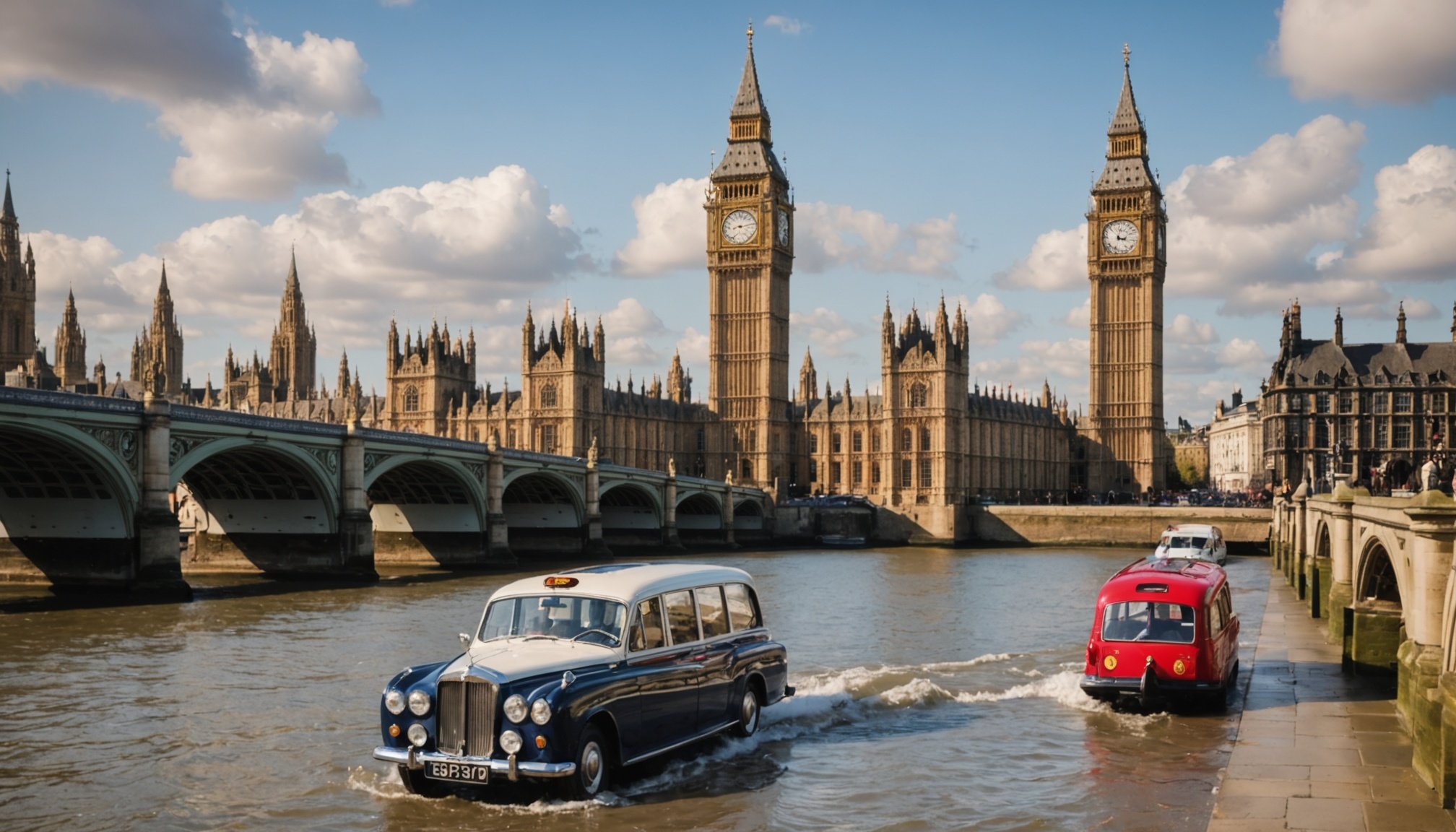Responding to Global Challenges: UK Tourism Policy Shifts
In recent years, UK tourism adaptation has been crucial as global challenges reshape travel dynamics. Factors such as the COVID-19 pandemic, evolving international relations, and sustainability concerns have pressured the UK government to rethink its tourism strategy. These external influences have disrupted traditional travel patterns and demanded swift policy responses.
The government’s tourism initiatives now emphasize resilience and flexibility. Following the pandemic, authorities introduced measures to support tourism businesses, such as financial aid packages and streamlined visa processes to encourage visitor inflows. Moreover, official statements highlight a shift toward sustainable tourism, aiming to balance economic growth with environmental responsibility.
Also read : What Are the Best Seasonal Travel Tips for Visiting the UK?
Early impacts of these policy changes are noticeable. The sector is gradually recovering, with a renewed focus on promoting lesser-known destinations to reduce pressure on popular sites and diversify tourist activity. Travel patterns reflect this shift, as tourists increasingly seek local experiences and eco-friendly options. This strategic adaptation not only helps the industry bounce back but also aligns with long-term goals for sustainable and inclusive growth in UK tourism.
Such proactive government tourism initiatives demonstrate a clear commitment to navigating global disruptions and securing the sector’s future.
Also read : Discover premium chauffeur services for unique uae journeys
New Marketing Initiatives and Promotion Strategies
Tourism marketing in the UK is adapting swiftly to global shifts by introducing targeted national and local campaigns. These efforts focus on boosting destination promotion by highlighting lesser-known attractions and regional experiences that appeal to diverse international visitors. In doing so, marketers respond to evolving international travel trends that increasingly favour authentic, sustainable, and personalised experiences.
Digital channels play a crucial role in these new marketing initiatives. Social media platforms, influencer collaborations, and immersive virtual tours are leveraged to engage potential travellers where they spend most of their time online. This digital emphasis enables campaigns to cut through noise and reach niche markets effectively. Partnerships between tourism boards, airlines, and hospitality providers further amplify the reach, creating tailored packages that align with travellers’ changing interests.
The shift in promotional focus also reflects a greater understanding of traveller priorities, such as wellness, cultural immersion, and eco-consciousness. By integrating these elements into destination promotion, UK tourism marketing becomes more relevant, offering compelling reasons for international visitors to choose the UK. Keeping a finger on the pulse of international travel trends ensures these new marketing strategies remain dynamic and results-driven.
Emphasising Sustainable Tourism and Environmental Responsibility
Sustainable tourism UK has become a key focus as both government and industry prioritize eco-friendly travel. Various responsible tourism initiatives are now integrated into standard practices, ensuring the protection of natural resources while enhancing visitor experiences. These efforts range from promoting low-impact transportation options to encouraging accommodations that use renewable energy or practice waste reduction.
The integration of environmental standards into tourism offerings is essential. Many providers in the UK have adopted certifications reflecting their commitment to sustainability, which helps travelers make informed choices. For example, eco-friendly travel options often include guided tours with minimal ecological footprints, supporting local communities, and conserving biodiversity.
Case studies highlight successes: a coastal town implemented measures to reduce plastic waste from tourists, resulting in cleaner beaches and increased wildlife sightings. Another project involved converting historic buildings into eco-conscious hotels, blending heritage with modern sustainability standards. These examples illustrate how sustainable tourism UK can balance economic benefits with environmental responsibility, encouraging visitors to play an active role in preserving destinations for future generations.
Adapting with Digital Transformation and Innovation
Digital tourism UK is rapidly evolving as businesses embrace technology in hospitality to enhance visitor experiences. One key trend is the surge in online booking trends, which streamline reservations and offer greater convenience to travelers. This shift helps tourism operators reach wider audiences and manage capacity efficiently, especially in a post-pandemic environment.
Investment in digital infrastructure plays a crucial role in supporting these advancements. High-speed internet, robust booking platforms, and integrated customer management systems allow tourism businesses to deliver seamless online experiences. With technology in hospitality continuously advancing, adopting contactless and virtual experiences has become essential. Contactless payments and QR codes reduce physical contact, ensuring safety, while virtual tours and augmented reality bring attractions directly to users’ devices.
Further, data-driven approaches to visitor engagement allow UK tourism providers to personalize services, predict trends, and optimize marketing strategies. By analyzing visitor preferences and behavior, businesses can craft tailored offers, boosting satisfaction and loyalty. The integration of these digital tools not only responds to modern traveler expectations but also drives innovation that positions UK tourism at the forefront of global competition.
Reforms in Visa Regulations and Entry Policies
Recent UK visa changes have focused on streamlining application processes while maintaining robust border regulations. These reforms aim to make travel requirements clearer and more accessible, benefiting both tourists and business travelers. The introduction of electronic visa systems speeds up approvals, allowing visitors to plan their trips with confidence.
Balancing security and accessibility is a key strategy driving these updates. The government emphasizes maintaining strict controls to protect borders without discouraging international arrivals. Enhanced screening measures work behind the scenes, minimizing disruptions at entry points while ensuring safety.
The impact of evolving travel regulations is evident in the steady increase in visitor numbers. Countries whose citizens benefit from simplified visa processes report higher tourist inflows. This trend demonstrates how thoughtful visa reforms and up-to-date travel requirements can boost the tourism sector while addressing security concerns.
Understanding these UK visa changes can help travelers navigate entry policies effectively. Staying informed about adjustments in border regulations allows visitors to avoid delays and ensure a smooth arrival experience.
UK Industry Response and Sector Resilience
The UK tourism sector recovery has been marked by strategic business adaptation and strong industry cohesion. To support this rebound, many organizations have launched initiatives focusing on workforce training and digital transformation, enabling businesses to meet evolving customer expectations. These efforts address immediate challenges and build resilience for future disruptions.
Collaboration between public and private sectors plays a critical role in stabilizing the industry. Government grants and recovery funds have been coordinated with private investments, fostering an environment conducive to innovation and growth. This partnership also includes shared data platforms and marketing campaigns that amplify the UK’s appeal in global markets.
Industry experts unanimously emphasize agility and flexibility as crucial factors. Tourism leaders predict a steady recovery trajectory but caution that sustained success depends on embracing technological advances and sustainability practices. This forward-looking approach ensures the sector remains competitive and attractive in a rapidly changing world.
Such insights reinforce that the UK tourism sector recovery is not just about bouncing back but evolving to thrive. The collective effort of businesses and policymakers exemplifies a model for resilience that other industries can emulate.











